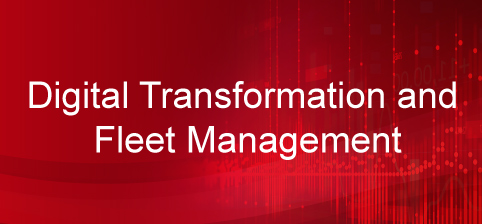Digital Transformation has become a buzzword in the systems management industry. However, true digital transformation, using Artificial Intelligence (AI) for tactical analytics, can help fleet managers at all levels – from life cycle management and costing to accounting for changes in usage and mobile fleets. Artificial Intelligence solutions exist that leverage digital transformation technology to provide actionable information across the entire Integrated Logistics Support (ILS) system from maintenance to engineering to supply chain and future acquisitions and modifications.
 Unsupervised Machine Learning Improves Maintenance Efficiency
Unsupervised Machine Learning Improves Maintenance Efficiency
Unsupervised machine learning improves maintenance efficiency by quickly aggregating, interpreting, and processing massive amounts of sensor data from systems in real time, resulting in higher operational readiness rates and adding a “true” predictive maintenance capability.
With AI, both preventative and predictive maintenance are possible, leading to more cost efficiency and less downtime. Preventative maintenance, or planned maintenance, relies on fixed maintenance schedules based on static operational parameters for failure. However, fleet managers could over or under maintain systems because there are variables in any system life cycle situation. Preventative maintenance alone, though helpful, is not able to adapt to these types of situations. However, unsupervised machine learning provides real time updates to the failure rubric creating the flexibility to adjust scheduled maintenance events.
Predictive maintenance optimizes even further – using unsupervised machine learning to trigger maintenance only when the individual vehicle, machine, or system needs it. AI helps to aggregate the data and turn it into actionable insights, combining historical models and analysis with real-time data at the vehicle level.
Dynamic FRACAS
Most life cycle manager programs have a long history with an established failure reporting, analysis and corrective action system (FRACAS). Life cycle management leverages FRACAS to identify root-cause analysis, however, these models are rarely updated and are applied across the entire fleet. These models are slow to evolve, leading to potential inefficiencies throughout the system lifecycle and do not take into consideration individual vehicle performance based on operational and environmental factors. With Artificial Intelligence, fleet managers can create dynamic FRACAS Modeling which increases root-cause analysis identification success metrics. An AI solution can link to the existing legacy FRACAS models and enables you to dynamically update it with current data. It can also take data directly from each individual vehicle, machine, or system in near real-time, updating the model for dynamic systems and increasing the probability of successful root-cause analysis.
Strategic Supply Chain Management Optimization and Simulation
The digital transformation made possible by Tactical Artificial Intelligence streamlines the management of the entire life cycle of a system or fleet. Not only are maintenance planning and FRACAS more accurate with Tactical Artificial Intelligence, but the entire supply chain sees results in future acquisitions optimization and simulation as well. Optimizations throughout the supply chain include:
- With AI, more accurate models are created and maintained as using current data removes model latency.
- Identification of future modification and acquisition decision making leading to improved mission readiness and decreased costs.
- Data becomes more accessible and usable at the everyday maintenance level – allowing for better decisions to be made throughout the entire supply chain and cutting down on the cost of downtime while increasing mission readiness.
The advantages of digital transformation in fleet management make finding a good tactical partner crucial for managers. Systecon’s Opus Suite not only has a solid legacy in costing, optimization, and simulation modeling, but also uses Tactical Augmented Optimization (TAO) to increase efficiency and update models dynamically to account for changes in operational requirements and environmental conditions of large systems. For more information on how Opus Suite and Systecon’s TAO enable fleet managers to realize the benefits of digital transformation, check out our use cases.







